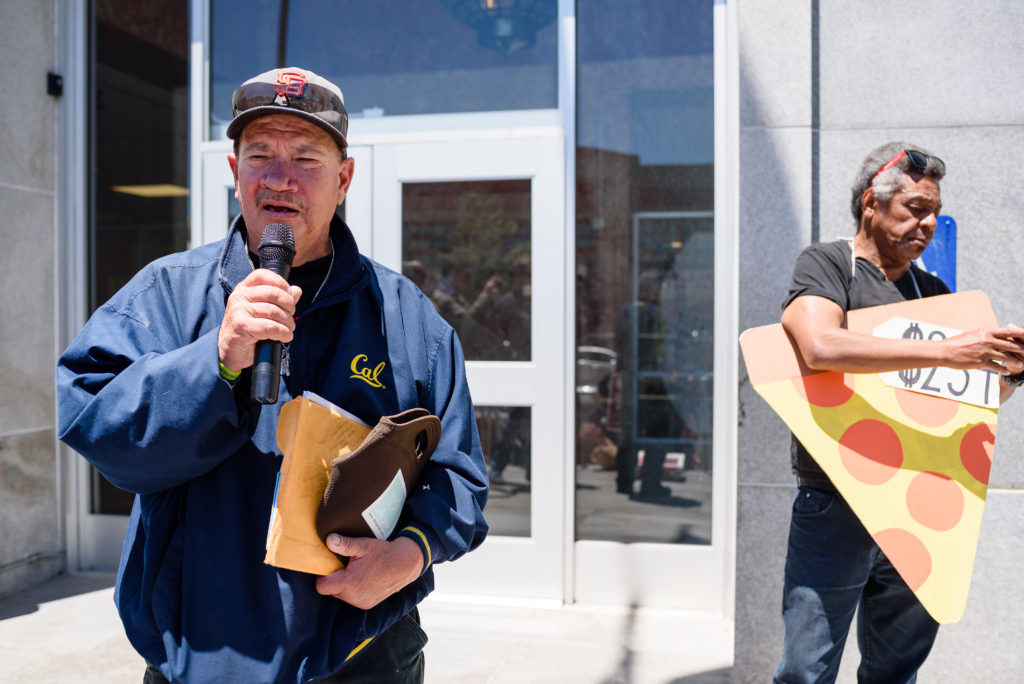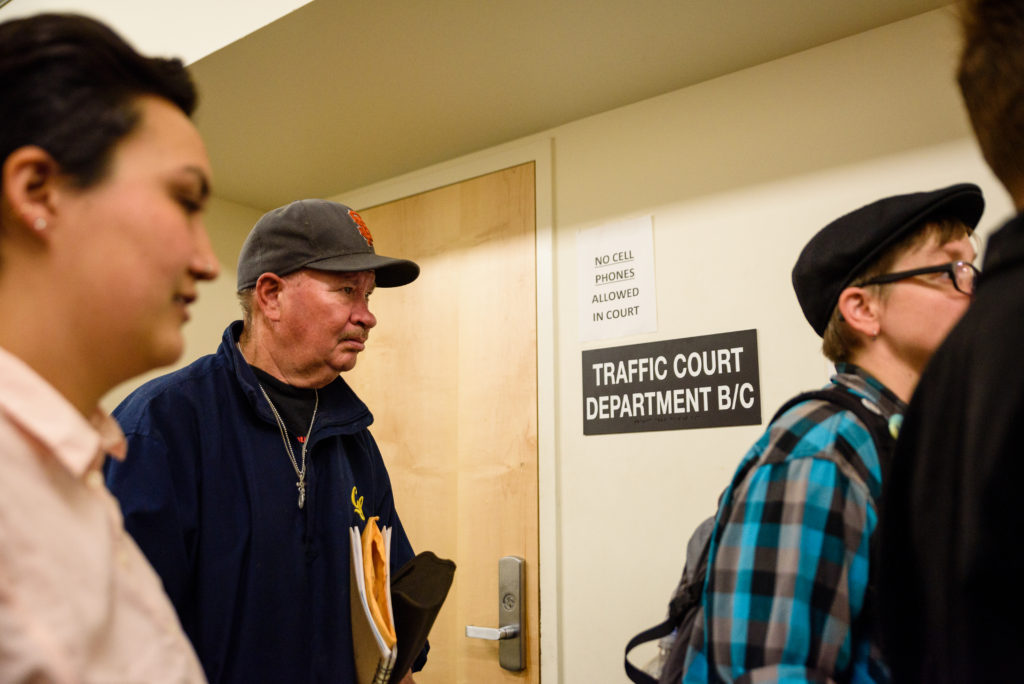Senior Daniel McHugh won’t be getting fined for eating at a bus stop.
It’s a citation that most have never heard of: Under California’s criminal code, eating at a bus shelter is illegal and can produce a fine of up to $250. McHugh, who was sharing a slice of pizza with a friend for her birthday, was cited by a San Francisco police officer in early March while waiting for the bus on Market and Seventh streets and fined $234. He says that all he wanted to do was share: “That’s what life is all about.”
According to Kelley Cutler, Human Rights Organizer at the Coalition on Homelessness, “You wouldn’t think about eating pizza in public. You’re waiting for a bus or hungry, you have a slice of pizza. But it is something that homeless people have to worry about. Just about every survival act is illegal if you’re homeless.”
Organized by the Coalition on Homelessness, activists, community members, and homeless individuals rallied on the steps of the Hall of Justice on Tuesday, June 13, to shed light on McHugh’s ridiculous case—and argue that it is an example of the systemic misuse of the City’s courts and police to criminalize poor and homeless San Franciscans.
McHugh’s case was dismissed because the police officer who issued the citation—identified only as Officer Day—was not present during the trial. But McHugh, who was homeless at the time, was given a citation that most others wouldn’t have received. The case is an illustration that quality-of-life citations such as this one are often exclusively enforced on poor and homeless people
Says Bilal Ali, “It’s a whole lot cheaper to house a person than to criminalize them.”
A tool for criminalizing homelessness, quality-of-life citations are often dismissed as most are unable to pay the fines—but people are still punished by having to go through an arduous process to get the fine cleared, which includes proof of 20 hours of receiving social services and two court visits. A 2015 City report showed that the San Francisco spent $20.6 million on quality-of-life on 60,491 citations—a hefty price tag with no return. It is an amount equivalent to 1300 subsidized affordable housing unit.
While McHugh’s case has been dropped, homeless people continue to face unfair fines and fees. Last month, a recent report published by San Francisco’s Fines and Fees Task Force highlighted the disproportionate burden that poor San Franciscans face from bus fines to quality-of-life citations. Still, there hasn’t been movement on the City taking up any of the important recommendations to reduce the burden of fines and fees on poor and homeless folks.
Says Cutler, “The criminal justice system should not be used to punish the poorest residents of this city.”



